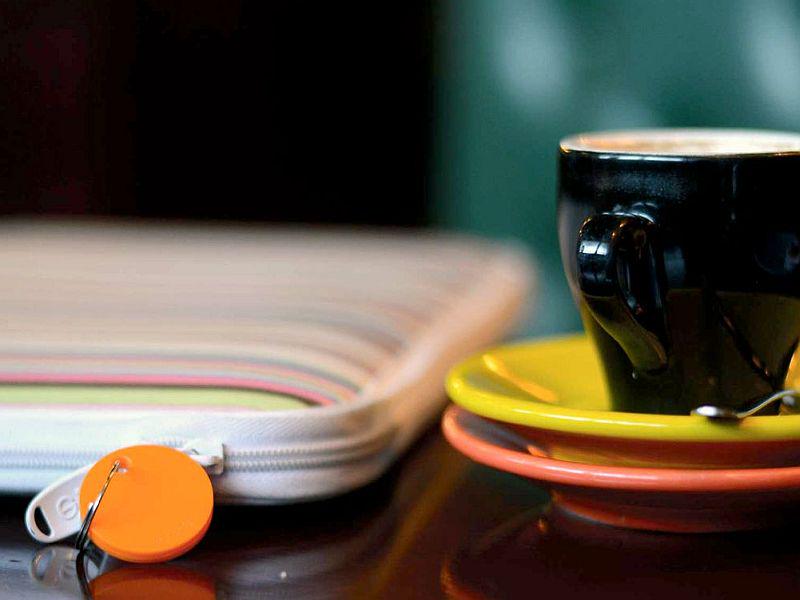
In fact, it’s a high-tech wireless device designed to keep people from misplacing their valuables.
The device is known as Chipolo and is the brainchild of a small team of young entrepreneurs from the industrial town of Tribovlje in east-central Slovenia. They realized that the average person spends 10 minutes a day looking for things they have lost or misplaced. Seeing a market niche, the Chipolo team designed a fob that would enable people to find their lost items in an instant. Chipolo may look simple, but it contains Bluetooth technology that enables it to link to any smartphone device running Andriod or iOS. The team spent considerable time on both the design and functionality of the device.
Users can attach a Chipolo to their keys or just about any object they could end up losing: their wallet, their laptop, their bag, or even their pet. They can then use their phone to locate the missing object – Chipolo’s signal reaches up to 60 meters (or 200 feet) away. But Chipolo also works when the signal is too far away: The app will remember the last detected location of the missing item and will guide the user back to that spot using GPS technology.
The Chipolo team decided to get their financing using the Kickstarter platform, which enables ordinary people to fund exciting new inventions. They set 15,000 U.S. dollars as their fundraising goal. Had they failed to reach that goal, the money would have to be returned to the investors, and the funding project would have been over.
But the response was amazing: Not only was the goal easily reached, it was wildly exceeded: At the end of the funding period, the Chipolo received more than 293,000 U.S. dollars in pledges from 5329 backers.
Production of the Chipolo is set to start this month. The device will be sold online for 24 euros (about 33 U.S. dollars) plus shipping, but the Chipolo smartphone app will be made available free of charge. At a time when Slovenia is dealing with a deep economic crisis, it’s particularly welcome news that the Chipolo devices will be manufactured in Slovenia -- and that young Slovenian inventors are successfully tackling the global high-tech market.
Jaka Bartolj

































































